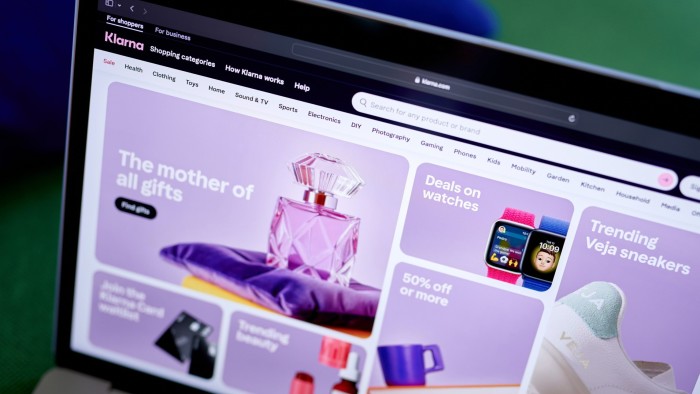Stay informed with free updates
Simply sign up to the Financial services myFT Digest — delivered directly to your inbox.
Klarna has been fined $50mn and reprimanded by Sweden’s financial regulator for breaking anti-money laundering rules as the buy now, pay later pioneer gears up for a stock market listing.
The Swedish regulator said on Wednesday that between 2021 and 2022 Klarna had “significant deficiencies”, such as not having any assessments of how its services could be used for money laundering or terrorist financing.
“The anti-money laundering regulations must be followed. It is important to counteract the risk that the firm’s operations could be used by criminals,” said Daniel Barr, director-general of FI, the main Swedish financial regulator.
Klarna is considering a listing in the US in the first quarter of next year after filing confidential initial public offering documents last month. The Swedish group is expected to be valued at up to $20bn.
But it has come under the spotlight of regulatory authorities around the world, which are increasingly scrutinising the buy now, pay later sector. Klarna has faced censure before over how it deals with credit risks and debt collection.
FI said its investigation was not serious enough to withdraw authorisation for Klarna or issue an official warning, but sufficient to hand the company “a remark” — a lesser rebuke — and a fine of SKr500mn ($45mn).
The regulator said Klarna had not had “procedures and guidelines that capture all situations for when due diligence measures should be taken for customers”.
All of Sweden’s largest banks have recently received fines for breaching anti-money laundering rules, including Swedbank — the country’s oldest lender — which was ordered to pay SKr4bn.
Klarna said on Wednesday that it faced “a complex set of regulations” and added that it was the largest Swedish bank — apart from state-owned SBAB — not to have been investigated until now.
It added that it took its responsibility to follow anti-money laundering rules “seriously”. It underscored that the FI decision was about “rule interpretation and application, and not to actual cases of money laundering”.
Founded in 2005 by a trio of Stockholm business school friends, Klarna has been on a rollercoaster ride in recent years, slipping from a 2021 valuation of $46bn — which made it Europe’s most valuable unlisted start-up — to just $6.7bn in its last official fundraising round in 2022.
It has also suffered from a big corporate governance rift between two of its co-founders — chief executive Sebastian Siemiatkowski and its third-largest shareholder Victor Jacobsson — that culminated in the latter’s representative being ousted from Klarna’s board in October.
A Klarna IPO would bring further scrutiny of the controversial buy now, pay later sector. Siemiatkowski has sold the Swedish group as offering customers far lower fees than credit cards, but charities and consumer groups have criticised the sector for encouraging people to take on extra debt that they often can ill-afford.
The US Consumer Financial Protection Bureau said earlier this year that buy now, pay later should be regulated like credit cards while the Labour government in the UK has launched plans to regulate it as consumer credit.
Klarna, which was profitable from its founding until 2019 when it started making losses due to its rapid expansion in the US, made a net profit of SKr216mn in the third quarter. But in the first nine months of this year, it made a net loss of SKr116mn.
Read the full article here

